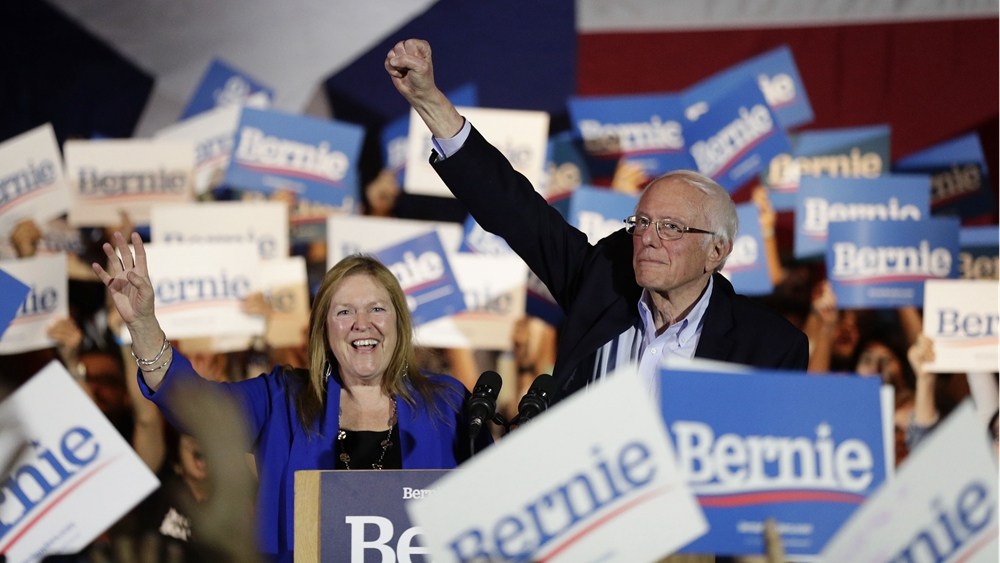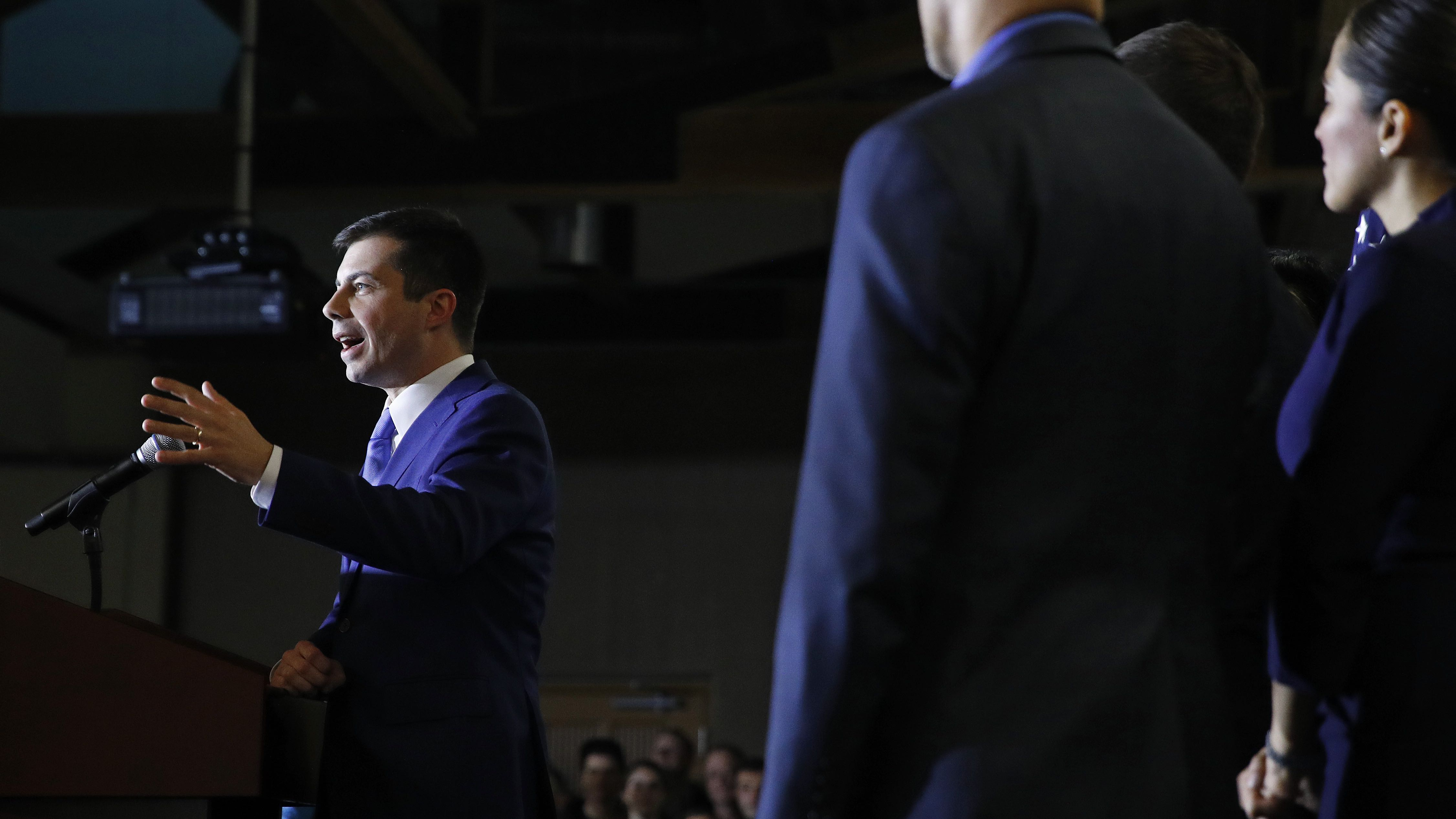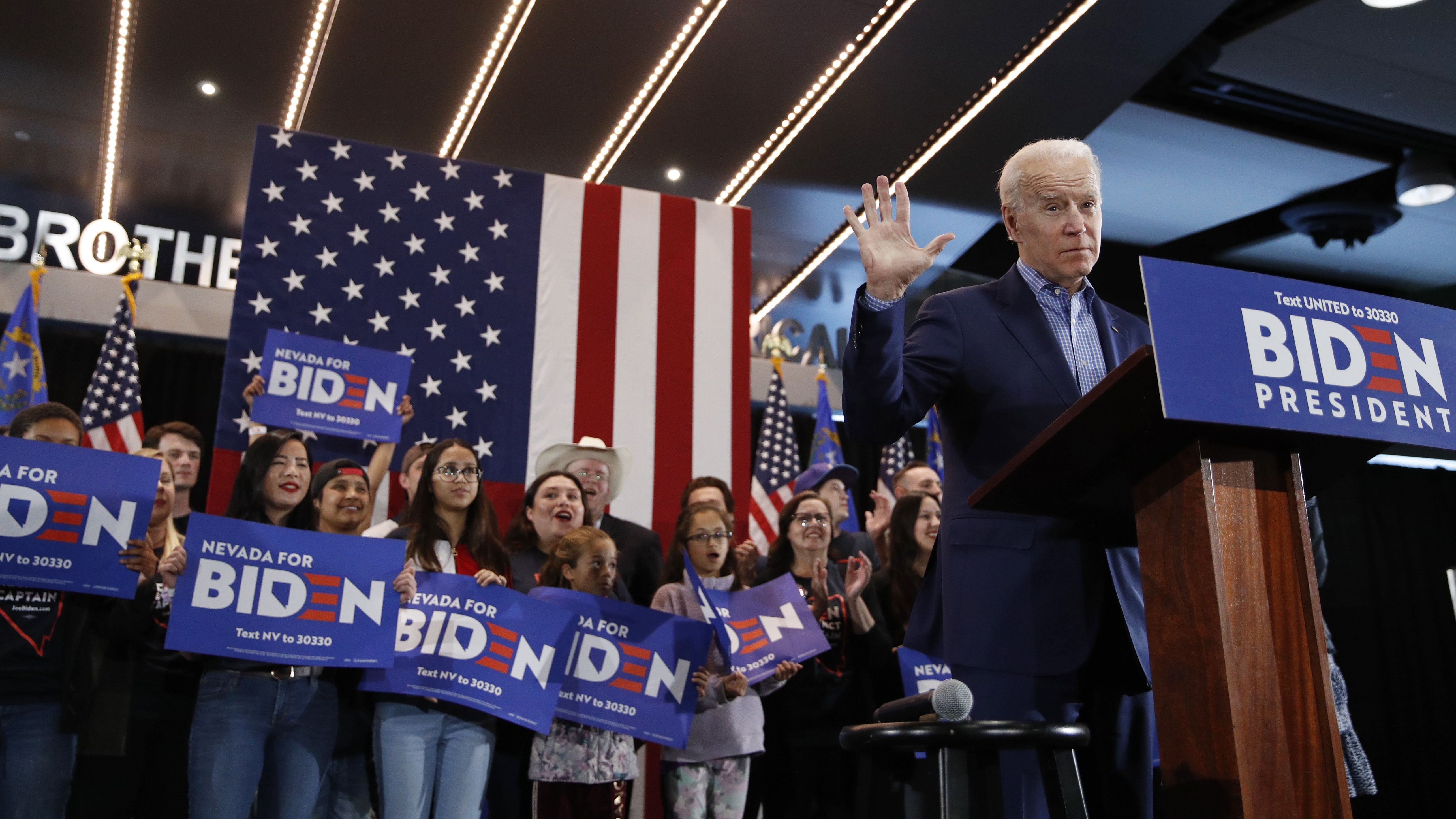Bernie Sanders comprehensively won the Democratic Party's Nevada caucuses on Saturday, initial results suggested, building on his victory in New Hampshire and his effective tie for first place with Pete Buttigieg in Iowa.
The victory cements the 78-year-old Vermont senator's status as the frontrunner in the contest to win the Democratic nomination and take on President Donald Trump in November's election.
"We've put together a multi-generational, multi-racial coalition, which is not only going to win in Nevada, it's going to sweep this country," Sanders told supporters in San Antonio, Texas late on Saturday.
00:36

The result will add to unease among more moderate and establishment Democrats, who fear Sanders' views are too extreme to win a general election and may damage the party in down ballot races.
Buttigieg, who was narrowly behind second-place Joe Biden in Nevada after early results, voiced those concerns by directly calling out Sanders on Saturday evening, warning that the frontrunner "believes in an ideological revolution that leaves out most Democrats as well as most Americans."
With only a winnowing of the field likely to slow Sanders' momentum, the 38-year-old former South Bend, Indiana mayor set out his case to be the alternative candidate to Sanders.
"That is the choice before us. We can prioritize either ideological purity or inclusive victory," Buttigieg warned.
"We can either call people names online or we can call them into our movement. We can either tighten a narrow and hardcore base or open the tent to a new and broad and big-hearted American coalition."

Pete Buttigieg speaks at a caucus night event, Las Vegas, Nevada, February 22, 2020. /AP
Pete Buttigieg speaks at a caucus night event, Las Vegas, Nevada, February 22, 2020. /AP
Biden, the former vice president who was leading the polls in Nevada in January, looked set to finish a distant second but argued the result marked the start of a comeback after finishing fourth in Iowa and fifth in New Hampshire
"I know we don't have the final results yet, but I feel really good," Biden told a crowd of supporters in Las Vegas after initial results were released. "You put me in a position, you know the press is ready to declare people dead quickly, but we're alive and we're coming back and we're going to win."
Biden is confident of winning the South Carolina primary on February 29, a make-or-break contest for his candidacy ahead of Super Tuesday, when more than a third of Democrat delegates will be up for grabs. He leads the polls in the state, but Sanders has narrowed the lead in recent weeks.

Joe Biden speaks at a caucus night event, Las Vegas, Nevada, February 22, 2020. /AP
Joe Biden speaks at a caucus night event, Las Vegas, Nevada, February 22, 2020. /AP
Elizabeth Warren, who shone in the Wednesday's debate, looked set for a fourth place finish in Nevada where around 70,000 Democrats voted early.
Her campaign manager Roger Lau insisted "tonight's results are a lagging indicator of the current state of the race," claiming the Massachusetts senator's "vote share appears to have gone up more than 50% between early vote & those who caucused today."
The favorite to leave the race next is Amy Klobuchar, who came into Nevada with momentum after a surprise third place in New Hampshire but finished in a weak fifth place on Saturday.
A major problem for all the candidates other than Sanders, Tom Steyer, a billionaire who finished sixth in Nevada, and Michael Bloomberg, who was not on the ballot on Saturday, is a lack of money heading into the 15 contests on Super Tuesday.
Neither Buttigieg nor Biden have spent any money in the Super Tuesday states, where Bloomberg and Steyer have splashed out around 160 million U.S. dollars and 38 million U.S. dollars respectively, and Sanders has invested around 10 million U.S. dollars.
While the momentum behind Sanders could propel him to a plurality of delegates at the Democratic convention in Milwaukee in July, the proportional allocation of delegates means he could struggle to win a majority – potentially setting up an explosive contested convention.